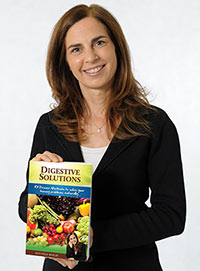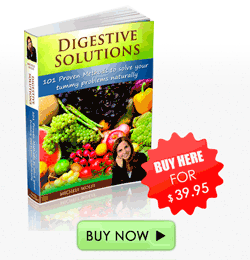Organic food
Does organic food really make a difference? Yes, but at first it’s not obvious. Accumulating toxins from pesticides and herbicides has a big impact on your digestion and the rest of your body over time. The liver continually detoxes chemicals from food and the environment on a day to day basis however, there is only so much it can take. There are many studies that show large amounts of pesticides in the umbilical cords of newborn babies and in the fat cells of adults. Another reason to buy organic is that a lot of foods are irradiated and people think it’s better than pesticide use but irradiation has its own health problems. Organic food could extend your life and research has shown this to be true in animals.
Irradiated food is when the food is treated with ionising radiation to halt the spoilage of food and destroy micro-organisms. Even though the food does not become radioactive there is concern amongst the public and consumer advocacy groups like Public Citizen that vitamins are lost, good micro-organisms may be lost and chemical changes to the food may occur that are harmful to the consumer. Irradiation is used in 50 countries on 500,000 metric tons of food worldwide.
Isn’t it best to invest in your health now to save ill health and cost in the future?
Think about your children
I know one family who sacrificed buying a home to feed their children with the best organic food. Those children are adults today and have no health problems and an abundance of energy. Now I’m not saying you have to go that far, many people won’t have to sacrifice their house but just look at other ways you can budget to get good healthy food. Join local food co-ops. Steiner schools often have cheaper organic food markets. Markets often have organic food at great value. Farmers markets often sell great value, pesticide free food that hasn’t yet been labelled organic.
One mother said to me when she started buying organic food, her son came home and only ate one apple instead of three. He was getting more nutrients in the one organic apple, minus the chemicals.
A study of 8 different non organic baby foods produced by Gerber, Heinz and Beech-Nut showed residues of 16 different pesticides including brain toxins and hormone disrupters. With a good blender it’s easy to make your own baby food. You can freeze it in ice cube trays for smaller portions.
In another study at the University of Washington, pesticide breakdown products were analysed in pre-school aged children and the researchers found that children eating organic fruits and vegetables had six times fewer pesticide remnants than children eating conventional produce. The study compared concentrations of organophosphorus (OP) pesticides (they disrupt the nervous system) in the urine of 39 children aged 2-4 years old. The findings showed parents could easily reduce their children’s chemical load by giving them organic food. Children are more at risk from pesticide contamination because they eat more relative to their body mass and they eat foods higher in pesticides which include juices, fruits and vegetables. Another study of 96 children showed OP pesticides in all but one child who was on an exclusively organic diet. It’s worth thinking about investing in their long term health and saving money on medical bills down the track. You will also add to your child’s vitality, learning ability and emotional state by feeding them organic food.
Taken from ‘Digestive Solutions – 101 proven methods to solve your tummy problems naturally’ By Michele Wolff
Click here for more details





